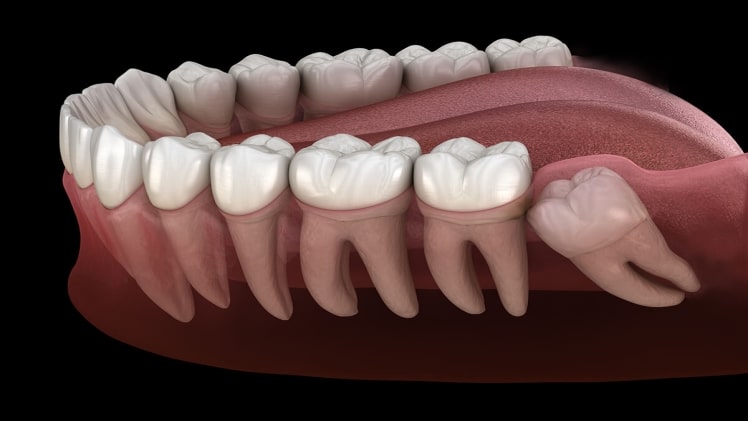Most people develop wisdom teeth (third molars) between the ages of 17 and 25. The teeth may erupt from the jaw as other molars did, but sometimes Wisdom teeth in Jasper may be impacted. Partial eruption of the third molars is primarily due to inadequate room in the mouth. The result is usually pain, infection, and other dental problems. Although impacted teeth can at times cause no symptoms, experts recommend tooth extraction to prevent possible problems in the future. Removal of the impacted teeth is a surgical procedure that oral surgeons perform. Here is more for you to learn about wisdom teeth removal.
How do I prepare for extraction?
First, you need to consult with your dentist or oral surgeon to understand what you need to do before surgery. For example, you may need to stop taking non-prescription drugs such as ibuprofen since they put you at risk for excessive bleeding during the extraction process. During a discussion with your dentist, you may ask several questions, including the number of teeth to be removed and the type of anesthesia you will receive.
Your oral surgeon may use one of the three anesthesia: local, sedation, and general anesthesia. The one used depends on the complexity of the impacted wisdom tooth and pain tolerance levels. For example, general anesthesia may be the option if your tooth is deeply impacted and removal involves a detailed surgical approach. Your doctor may also discuss the risks of wisdom tooth extraction.
Risks of wisdom tooth extraction
Hardly does wisdom teeth removal result in long-term complications. However, since it requires a surgical approach, it poses several risks like other surgeries. The most common ones include:
-
Dry socket
It is a common problem when blood fails to clot on the tooth socket or when the clot dislodges. The exposed bone causes an intense throbbing pain similar to a toothache. You may be more susceptible to a dry socket if you smoke, the procedure is complicated, or you don’t adhere to your surgeon’s post-operative instructions.
-
Nerve injury
The surgical procedure may damage parts of the trigeminal nerve, resulting in symptoms such as pain and desensitization of gums, teeth, lower lip, tongue, and chin. The damage is temporary and may improve with time. However, severe damage to the nerve may cause extended sensation problems. Everyday activities like eating and drinking may become challenging.
-
Infection
Accumulation of food particles in the tooth socket provides breeding grounds for bacteria which can cause an infection.
What does wisdom tooth removal involve?
First, your specialist administers anesthesia to reduce any pain and make you calm during the procedure. Depending on the type of anesthesia given, you may be unconscious or aware of your surroundings during the process. Next, the doctor makes a tiny cut on your gum tissue to expose the impacted tooth. If the tooth is covered with bone, a drilling device may be used to remove the bone.
Once the impacted tooth is visible, the surgeon uses various surgical tools to loosen it or remove it in pieces. After extracting the tooth, the surgeon closes up the incisions.
Regardless of whether your impacted teeth are asymptomatic or not, medical attention is necessary. Book a session today with your oral surgeon at Advanced Dental Care of East Texas to remove your impacted molars.

